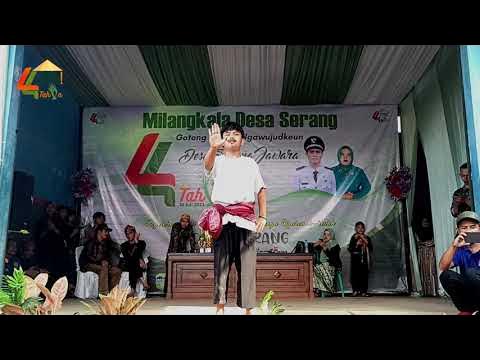Upanishad Ganga | Ep 14 -Married Life | महाकवि माघ #Hindi #Hindu #ChinmayaMission
Summary
TLDRThe script explores themes of spirituality, societal expectations, and personal conflicts, interwoven with moments of humor and reflection. Characters discuss the practice of Brahmacharya (celibacy), the duties of selfless service, and the responsibilities they hold within familial and societal structures. A central figure, the Mahakavi (great poet), is revered, yet tensions arise regarding moral integrity, the value of poetry, and the balance between material and spiritual life. The script delves into the complexities of duty, sacrifice, and the challenges of maintaining virtue in the face of worldly temptations.
Takeaways
- 😀 The concept of 'second birth' is introduced, symbolizing the entrance into Brahmacharya (celibacy) as a spiritual renewal.
- 😀 The script discusses the challenges and complexities of life, symbolized through food experiences—sometimes bitter, sweet, sour, or bitter, but ultimately, life is about the essence or 'ras'.
- 😀 There is a focus on the narrator's dissatisfaction with the service to their master, the 'Mahakavi', and the idea of not wanting to be bound by the role of a servant.
- 😀 The script portrays a critique of materialism and exploitation, with the narrator reflecting on the selfish actions of their master, who has taken away their rights and possessions.
- 😀 The relationship between the narrator and their spouse is explored, with the spouse expressing frustration over their master’s actions and the personal toll it has taken.
- 😀 The script includes philosophical dialogues about the value of poetry, personal freedom, and the importance of spirituality in guiding one’s actions.
- 😀 A mention of the narrator’s father, his contributions, and how they reflect the tension between serving others and maintaining one's dignity.
- 😀 The narrator expresses their desire for better material conditions, like wearing good clothes and jewelry, yet remains caught in a system that promotes spiritual asceticism.
- 😀 A subplot develops around the narrator’s daughter’s marriage, where they seek financial support for the ceremony, highlighting societal pressures and familial obligations.
- 😀 The script concludes with a reflection on how the pursuit of knowledge and spiritual practices (Brahmacharya) can help one navigate life’s challenges, emphasizing non-violence, duty, and respect for others.
Q & A
What philosophical concept is mentioned regarding the practice of Brahmacharya?
-The practice of Brahmacharya (celibacy) is referred to as a 'second birth' in the script, symbolizing a spiritual transformation from darkness to light, aligning with the pursuit of knowledge and purity.
Why does the speaker express a desire to leave the current place?
-The speaker expresses a desire to leave because they feel they are not meant to stay, especially after learning of the injustice done by the 'Mahakavi' (great poet) and the unfair treatment they received.
What is the criticism against the Mahakavi (great poet)?
-The criticism against the Mahakavi is that he has exploited others, including the speaker, by taking their possessions and leaving them with nothing, despite his great reputation and acclaim.
How does the speaker view the relationship with the Mahakavi?
-The speaker seems disillusioned with the Mahakavi, having once served him, but now feels exploited and betrayed by him, leading to the decision to leave and not continue the service.
What role does the concept of 'Siddhartha' play in the dialogue?
-Siddhartha is presented as a figure who is part of a philosophical and spiritual discourse. He appears to challenge the speaker's thoughts and plays a significant part in guiding the conversation about spiritual and material struggles.
What does the speaker mention about the importance of family in the script?
-The speaker reflects on the importance of family, particularly in relation to the upcoming marriage of their daughter. They express frustration over the lack of resources and the struggle to fulfill their daughter's marriage needs.
How does the speaker describe their dissatisfaction with the treatment they've received?
-The speaker describes their dissatisfaction by highlighting how their rightful possessions were taken from them by the Mahakavi, who had promised to be generous but ended up exploiting them.
What is the significance of the references to 'prize' and 'award' in the context of the Mahakavi?
-The references to 'prizes' and 'awards' serve to contrast the Mahakavi's external recognition and success with the inner emptiness and injustice faced by those serving him, including the speaker.
What does the speaker wish to achieve in terms of personal growth?
-The speaker expresses a desire for personal growth, particularly through the pursuit of poetry and learning, but is frustrated by the lack of genuine guidance from the Mahakavi, who has not delivered on promises of teaching.
What is the script's perspective on materialism and spirituality?
-The script juxtaposes material struggles (like the daughter's marriage and the lack of resources) with spiritual aspirations (such as the practice of Brahmacharya and seeking knowledge), suggesting a tension between worldly needs and spiritual ideals.
Outlines

このセクションは有料ユーザー限定です。 アクセスするには、アップグレードをお願いします。
今すぐアップグレードMindmap

このセクションは有料ユーザー限定です。 アクセスするには、アップグレードをお願いします。
今すぐアップグレードKeywords

このセクションは有料ユーザー限定です。 アクセスするには、アップグレードをお願いします。
今すぐアップグレードHighlights

このセクションは有料ユーザー限定です。 アクセスするには、アップグレードをお願いします。
今すぐアップグレードTranscripts

このセクションは有料ユーザー限定です。 アクセスするには、アップグレードをお願いします。
今すぐアップグレード5.0 / 5 (0 votes)






